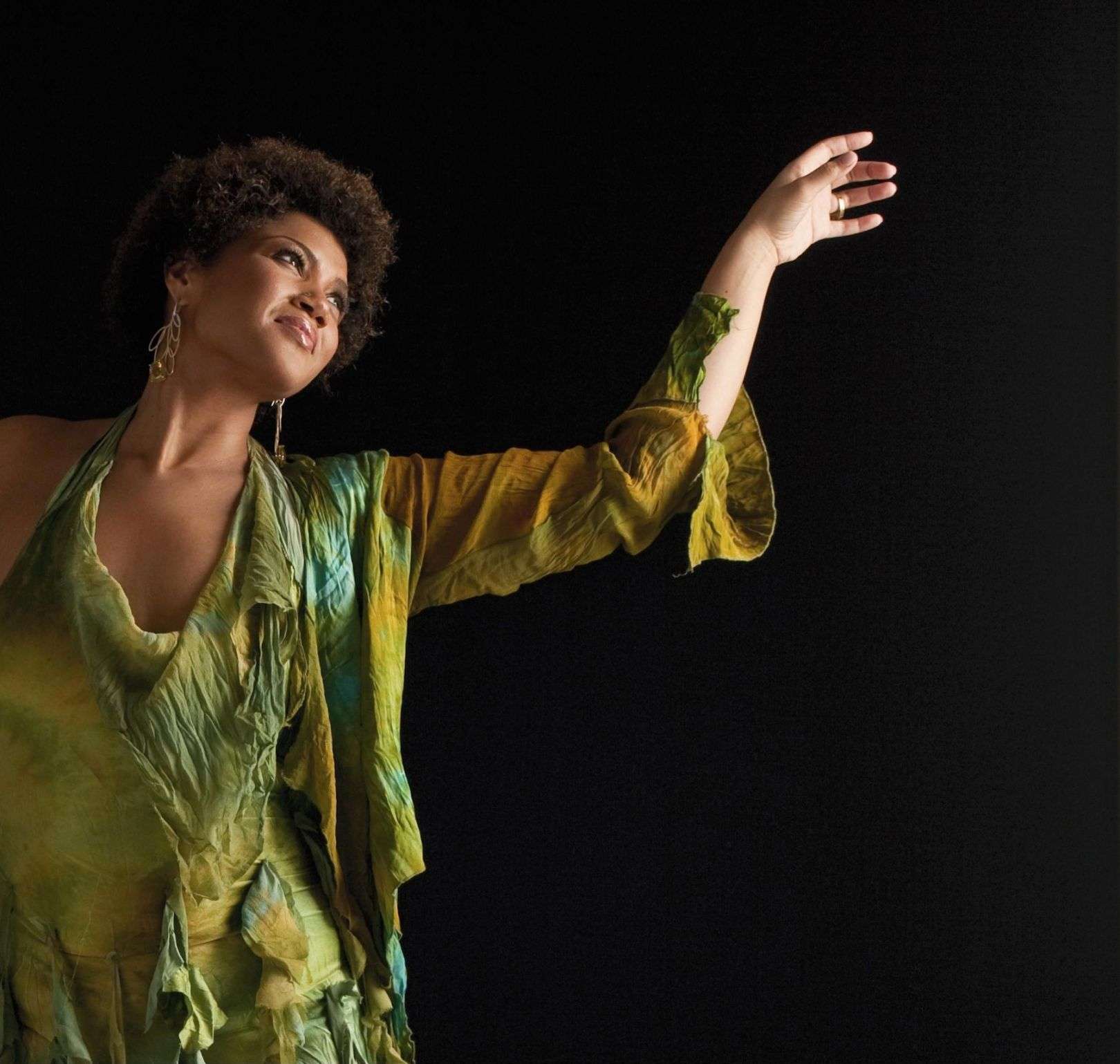|
Back
Measha and The Seven Deadly Sins Kitchener
The Centre in the Square
02/24/2011 - and February 25, 26*, 2011
Ludwig van Beethoven: Overture to Die Weihe des Hauses, Op. 124 – Symphony No. 1 in C major, Op. 21
Kurt Weill: Die sieben Todsünden – "Die Moritat von Mackie Messer" from Die Dreigroschenoper
Measha Brueggergosman (soprano), Isengart (cabaret performer), Peter Tiefenbach (baritone), James Tuttle (tenor), Charles Fowler (tenor), David Roth (bass)
The Kitchener-Waterloo Symphony Orchestra, Edwin Outwater (conductor)

M. Brueggergosman (© Eugene Wei)
Much like the heroine, Anna, of Kurt Weill and Bertolt Brecht’s Die sieben Todsünden (“The Seven Deadly Sins”), this program by the Kitchener-Waterloo Symphony Orchestra had something of a split personality.
First up was Beethoven’s overture Die Weihe des Hauses (“The Consecration of the House”), a late work with stylistic hints from Handel and Haydn in its stately opening. Unfortunately the pace remained rather stately even in the concluding fugato section and the result was earthbound when lift-off was expected. I suspect it was under-rehearsed. With the time-budgeting forced on orchestras, the short opening work on a program is the one most likely to get short shrift.
Things went much better in Beethoven’s First symphony. The first two movements were decently presented in a standard, well-mannered way, and then the two final movements, each with Allegro molto e vivace indications, soared beautifully into the stratosphere with a remarkable degree of precision that never seemed forced.
Our applause for this exhilarating performance was interrupted by the Master of Ceremonies for the second half, the German (but New York-based) cabaret artist Isengart. He encouraged us to have a drink (or two) during the interval and also to flirt with one another. The second part of the program began with his performance of “Die Moritat von Mackie Messer” (better know to us as “Mack the Knife”) and it quickly became clear that he is quite the charismatic performer who exudes a jazzy electricity even when standing still. Not to mention that he has the ideal voice for this repertory.
In The Seven Deadly Sins Isengart took the role of Anna II, who has just a few brief lines in response to her sister/other half, Anna I. This is a strange, even unique, work. It was designed as a sung ballet, the only one of its kind to my knowledge. Many ballets have been set to pre-existing vocal works (e.g., Kenneth MacMillan’s Song of the Earth using Mahler’s great symphony), but this was specifically commissioned in 1933 for a singer and a dancer to share the central role of Anna. The choreographer was none other than George Balanchine.
The plot centres on a young woman who is sent by her exploitive family to work as best she can in seven cities over a seven year period to send money back so they can build a nice house for themselves on the bank of the Mississippi River. The 40-minute piece is in nine sections: a prologue, then a section for each sin (sloth, pride, anger, gluttony, lust, avarice, envy), then an epilogue. Brecht’s libretto brims with bitter paradox. With respect to gluttony, for example, Anna is urged to keep her weight down so she can remain attractive to audiences (so she can earn money to send back to her ever-hungry family). With respect to lust she is urged to repress her feelings of love for one man so she can earn more as a rich man’s lover. She must curb her anger with injustice. The family members are the epitome of sloth, gluttony and avarice while urging Anna’s altruism so that they can attain their own ends. Anna struggles but in the end acquiesces. It’s very, very Brechtian - echt Brecht as it were.
As Anna I Measha Brueggergosman continues her exploration of Brecht/Weill after her recent portrayal of Jenny in Aufstieg und Fall der Stadt Mahagonny in Madrid. She can be as spiky and sardonic as the cabaret atmosphere of the piece demands, interspersed with moments of genuine anguish when she must express Anna’s predicament. I’ve seen a performance where Anna is laconic and detached, but in this performance that attitude is left to Anna II. Anna I has five arias (or scenas) and Brueggergosman emphatically delivers each and every one of them. There are several recordings of the work and I expect (and hope) there will soon be one from her.
The fact that a man performs the alter-ego/sister is not all that jarring, considering that Anna’s mother is performed by a baritone (ably, by Peter Tiefenbach). The male quartet portraying the hectoring family had just the right brutal sound. Edwin Outwater and the orchestra were totally in the same realm as the singers, giving moments of great punch and verve.
The concert format meant that there was a lot more tell than show. The KWS uses projections on a lowered screen to give the audience pre-performance information and this medium could have been used to help put the concentrated plot across. Isengart was under-used.
We were treated to an encore: the acidulous “Liebslied” from Act I of Die Dreigroschenoper when Macheath and Polly Peachum declare their love.
In this part of the world we can now look forward to Measha Brueggergosman’s performance of Vitellia in Mozart’s La Clemenza di Tito for Opera Atelier in April. And let’s keep our eye out for the talented Isengart.
Michael Johnson
|